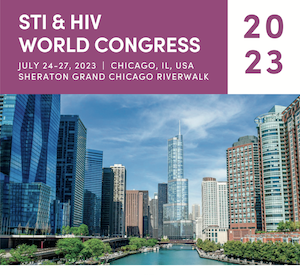Epidemiology & Monitoring
Session: Late Breaker - 2: gonorrhoea and M. genitalium
LB2.5 - Detection of two ceftriaxone non-susceptible Neisseria gonorrhoeae isolates in an HIV pre-exposure prophylaxis program in Vietnam
Wednesday, July 26, 2023
15:30 - 15:45 CST
Location: Michigan A+B

Paul Adamson, MD MPH (he/him/his)
Assistant Clinical Professor
Division of Infectious Diseases, UCLA School of Medicine
Los Angeles, California, United States
Primary Presenter(s)
Background: Antimicrobial resistance (AMR) in Neisseria gonorrhoeae is an urgent global
health issue. The prevalence of AMR is highest in the Western Pacific Region. Patients in HIV
pre-exposure prophylaxis (PrEP) programs have higher rates of N. gonorrhoeae infections and
AMR. Our study investigated AMR in N. gonorrhoeae among participants in an HIV PrEP
program in Hanoi, Vietnam.
Methods: Starting in January 2022, patients in the HIV PrEP program at Hanoi Medical
University were enrolled into the study. Swabs for N. gonorrhoeae culture were collected from
those with signs or symptoms of infection and those found to have N. gonorrhoeae infection by
nucleic-acid amplification testing (NAAT). Culture was performed on Modified Thayer-Martin
media. Antibiotic susceptibility testing (AST) was done using Etests (BioMerieux) and minimum
inhibitory concentrations (MICs) were interpreted by Clinical and Laboratory Standards Institute
breakpoints. Whole genome sequencing (WGS) was performed on extracted DNA using MiSeq
(Illumina). Genomic analysis was performed using PathogenWatch.
Results: In total, 17 N. gonorrhoeae isolates were cultured from 16 male participants. There were 7 urethral,
6 rectal, and 4 pharyngeal isolates. Two isolates (11.7%) were non-susceptible to azithromycin.
Two isolates (11.7%) were non-susceptible to both cefixime (MIC=1.5 ug/mL) and ceftriaxone
(MIC=0.38 ug/mL). The ceftriaxone non-susceptible isolates were both rectal isolates identified
in November and December 2022. One patient reported rectal symptoms of discharge and
diarrhea while the other was asymptomatic. Both patients received ceftriaxone 500mg
intramuscularly; neither presented for test-of-cure, but both had negative NAATs 3 months after
their initial infections. Genomic analysis of the two ceftriaxone non-susceptible isolates show
they belonged to MLST 13871, a sub-clone of FC428, containing the mosaic penA-60 allele with
A311V, G545S, I312M, and T483S penA mutations.
Conclusions: Routine culturing for N. gonorrhoeae within a PrEP program in Vietnam identified
two ceftriaxone non-susceptible isolates containing the penA-60 allele. The penA-60 allele is
emerging as an allele of international concern and associated with reports of treatment failure in
Europe, typically associated with travel to Asia. Integrating N. gonorrhoeae culture, AST and
WGS in HIV PrEP programs can improve AMR surveillance, particularly in regions with a high
prevalence of AMR.

